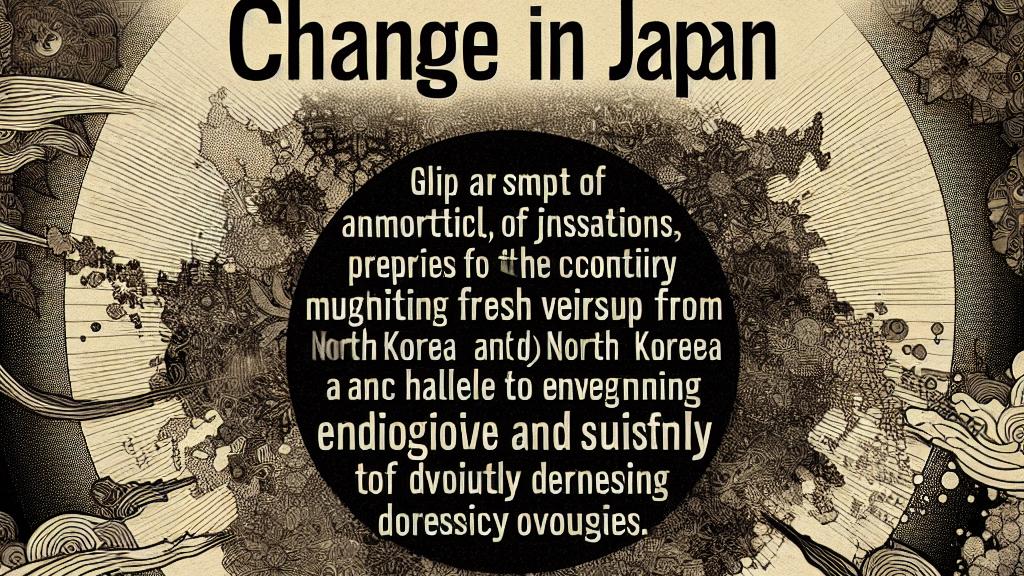The X-Factor: New Leadership and the Future of Japan-South Korea-US Relations!
Overview
- Japan's political landscape shifts as Prime Minister Fumio Kishida steps down.
- Trilateral relations with South Korea and the U.S. are essential for regional security.
- New leadership will define future cooperative strategies against global challenges.

Significant Leadership Change in Japan
Japan is facing a major transition as Prime Minister Fumio Kishida has confirmed he will not seek re-election, setting the stage for a new leader by September 2024. This decision comes after declining approval ratings and ongoing issues within his party, especially linked to corruption scandals. The new prime minister will take office during a crucial period for Japan, as the country grapples with increasing pressures from North Korea and complex international relations. The leadership change not only represents an opportunity for fresh ideas but also a challenge, as the incoming leader will need to quickly establish credibility both domestically and abroad.
Vital Trilateral Partnership Amidst Rising Tensions
The trilateral alliance among the United States, Japan, and South Korea has emerged as a cornerstone in addressing regional security threats, especially from North Korea. Following the historic summit at Camp David, the three nations committed to enhancing military cooperation, real-time data sharing regarding missile launches, and joint economic strategies. However, the impending departure of key leaders, including U.S. President Joe Biden and Japanese Prime Minister Kishida, raises questions about the continuity of these initiatives. It will be essential for the new Japanese leader to reinforce these relationships to ensure ongoing collaboration on critical security and economic issues, especially as North Korea continues to develop its missile and nuclear capabilities.
Challenges and Opportunities on the Horizon
As Japan welcomes new leadership, significant challenges loom. The next prime minister must adeptly handle internal and external pressures, such as the need for economic revitalization in the wake of scandals and enhancing technological cooperation among the trilateral partners. The dynamics of cooperation will be influenced by rising competition with China, necessitating a robust and unified approach to regional policies. By prioritizing joint efforts in defense technology, cybersecurity, and economic strategies, the new leadership can navigate these complexities. A successful bilateral and trilateral collaboration will not only reinforce security policies but also stimulate regional growth and stability in the Indo-Pacific, establishing a foundation for sustainable partnerships amidst an ever-evolving geopolitical landscape.

Loading...